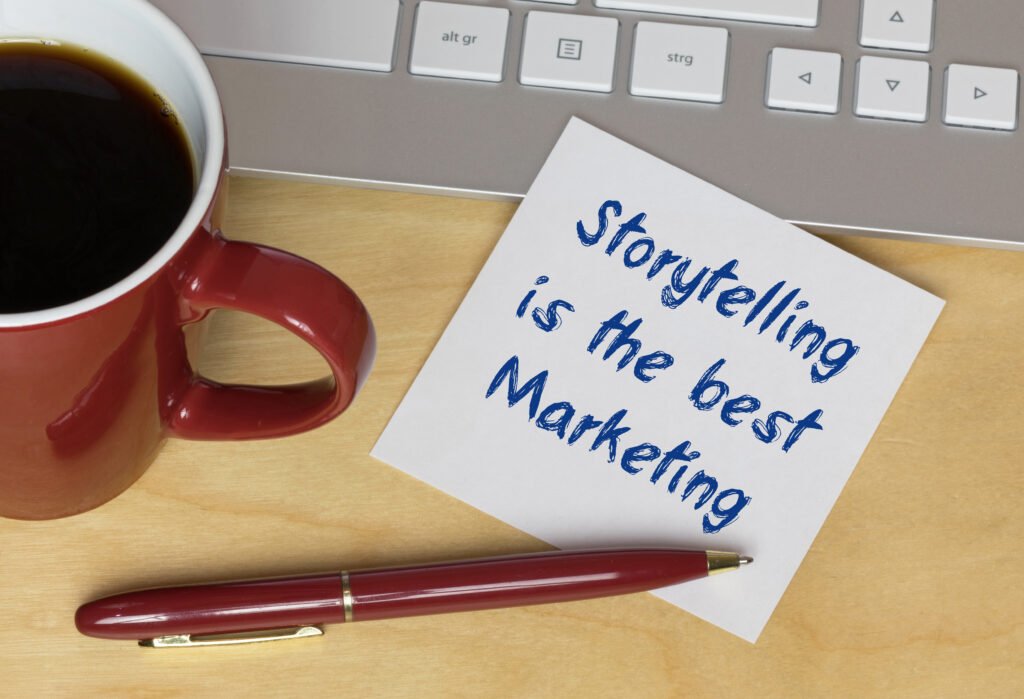Great Marketing Relies on Telling Your Story
Here in the inspiring creative landscape of Aberdeenshire, Scotland, it’s hard not to feel the impact of the many stories that surround us. Those tales are etched into the land, our history and the people all around north-east Scotland. Stories are hugely important to Culture Shock, driving the work we do as well as inspiring us creatively. At the heart of our philosophy lies a powerful truth: great marketing relies on storytelling.
The Power of Narrative
Storytelling isn’t just for novelists and filmmakers. It’s a fundamental human experience that resonates across all aspects of our lives, including how we perceive and interact with brands. Adding an engaging narrative to your marketing can have a huge impact, making your efforts far more memorable than just facts and data alone – though those are clearly important too!

But why is storytelling so effective? It’s simple: stories create emotional connections. They transform your brand from a faceless entity into a relatable character with values, challenges, and triumphs. This emotional resonance is what turns casual browsers into loyal customers.
Strategy: The Compass for Your Story
However, a compelling story alone isn’t enough. To truly harness the power of storytelling in marketing, you need a robust strategy. This is where Culture Shock’s expertise comes into play.
A well-crafted marketing strategy serves as a roadmap, ensuring that your story reaches the right audience at the right time. It’s about efficiency and effectiveness – maximising your resources to achieve optimal results.
The Importance of Audience Segmentation
One crucial aspect of marketing strategy is audience/customer segmentation. As the Audience Agency explains:
“Segmentation is simply the process of dividing and organising the population into meaningful and manageable groups – or segments – so that you can tailor your cultural offer and communications to the preferences of each group.”
By dividing your target market into specific groups based on characteristics like demographics, behaviours, or interests, you can tailor your storytelling to each segment. This personalised approach not only increases engagement but also improves conversion rates. People are more likely to buy what you’re selling – be it tickets for a theatre performance, a new piece of sales software, or even the latest mobile phone – if they connect with your message on an emotional level, and you need to pitch the right story to the right people. That’s all segmentation is, and successful approaches can often be very simple as well as the more complex models.
Bringing It All Together
At Culture Shock, we understand the delicate balance between creative storytelling and strategic planning. Our approach, refined through years of experience in arts marketing and cultural policy, is particularly suited to businesses in the creative industries, including digital and tech sectors.

We believe that every brand has a unique story to tell. Our job is to use robust research, innovative tools and our collaborative approach to help you uncover that story, shape it into a compelling narrative, and strategically deliver it to the audiences who matter most to your business.
In the words of David Officer, Culture Shock’s director:
Great marketing is about more than just promoting a product or service. It’s about creating a narrative that resonates with your audience, and strategically placing that narrative where it will have the most impact.
As you navigate the complex world of marketing in the digital age, remember: your story is your most powerful tool. But like any tool, its effectiveness depends on how skillfully it’s wielded. With the right strategy and expert guidance, your brand’s story can become a catalyst for growth and success.
Are you ready to revolutionise your marketing approach? Let Culture Shock help you craft a story that not only captures attention but also drives results. Because in the end, great marketing isn’t just about telling a story – it’s about telling the right story, to the right people, in the right way.
